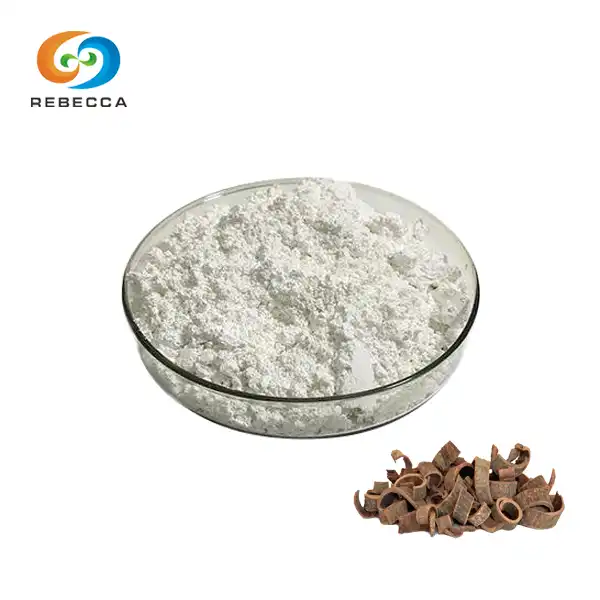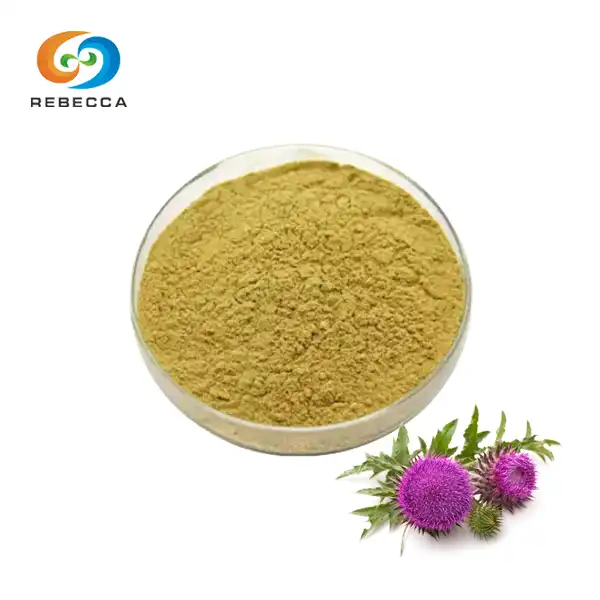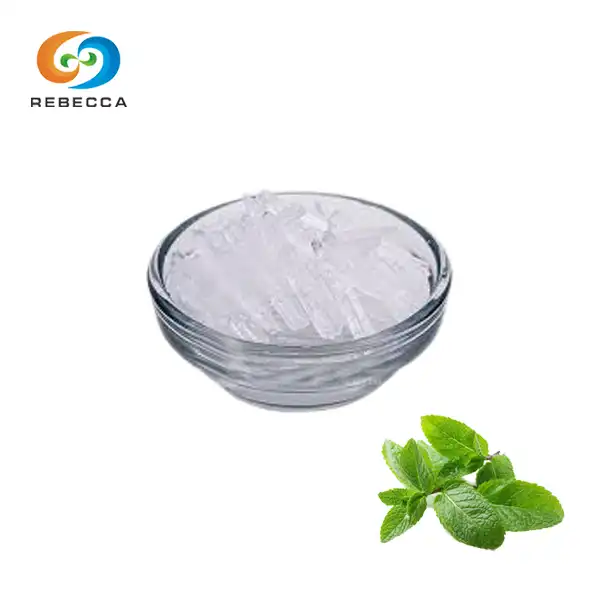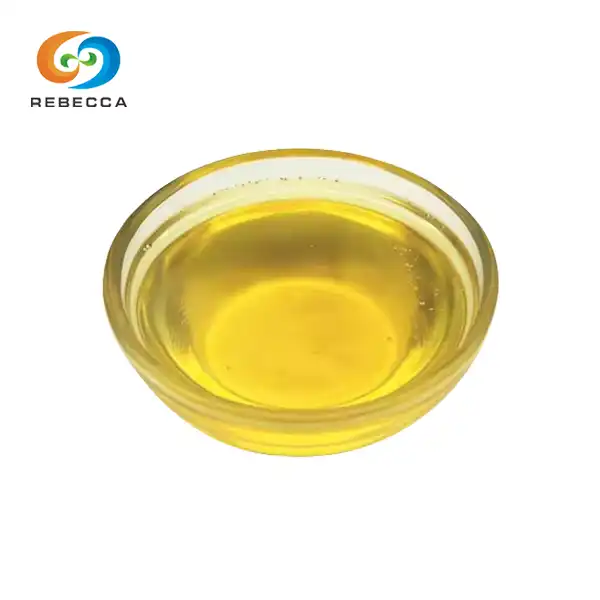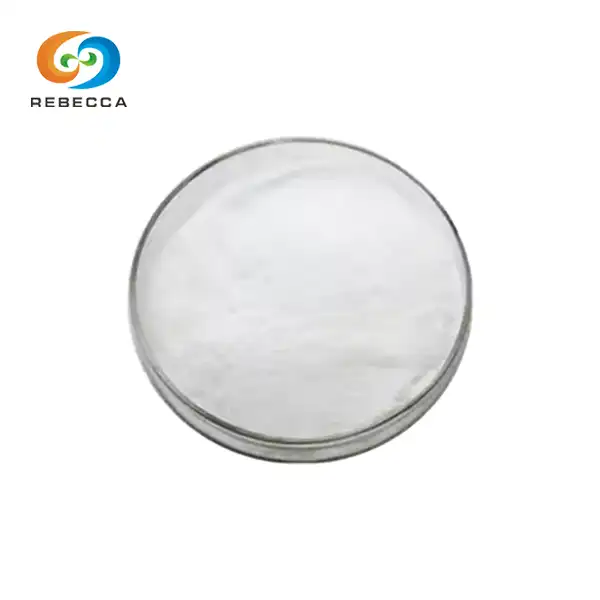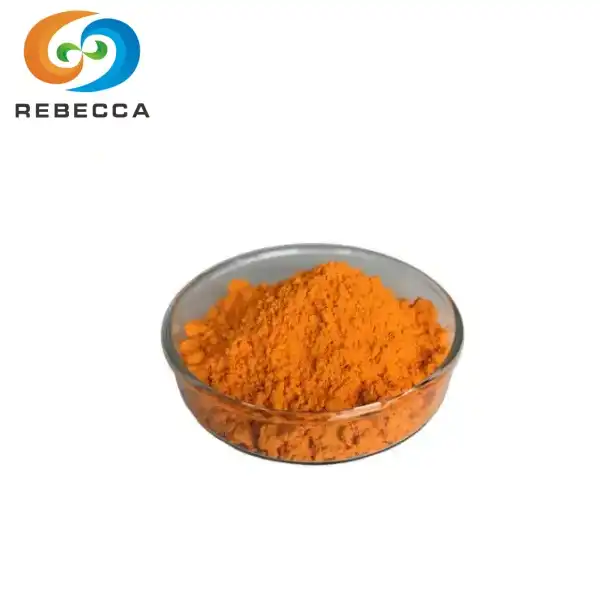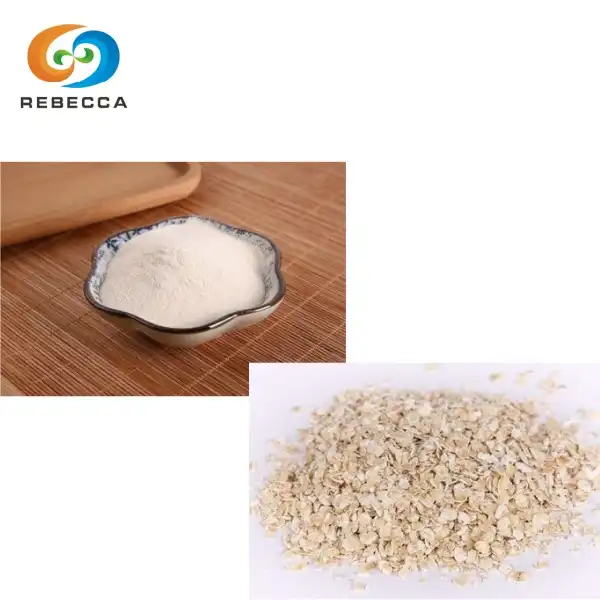How Alpha-Ketoglutarate Affects Protein Synthesis?
Alpha-Ketoglutarate (AKG) is a crucial molecule that plays a significant role in various metabolic processes, including protein synthesis. This article delves into the intricate relationship between Alpha-Ketoglutarate (Cas no:328-50-9)and protein synthesis, exploring its multifaceted effects on this essential biological process.
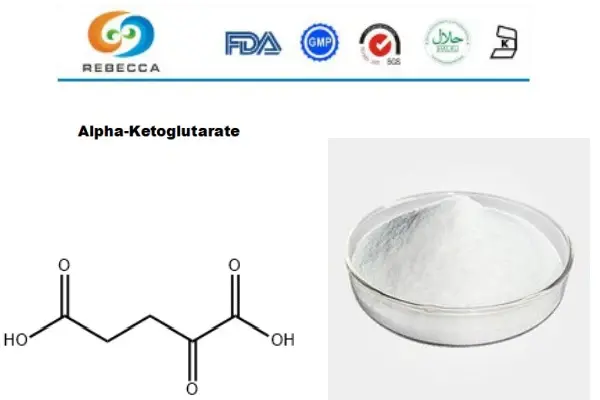
As A Precursor Of Amino Acids
One of the primary ways Alpha-Ketoglutarate affects protein synthesis is through its role as a precursor to several amino acids. AKG serves as a vital intermediate in the Krebs cycle, also known as the citric acid cycle, which is central to cellular energy production and metabolism.
AKG can be converted into glutamate through a process called transamination. Glutamate, in turn, serves as a precursor for several other amino acids, including:
- Glutamine
- Proline
- Arginine
These amino acids are essential building blocks for proteins, and their availability directly impacts the rate and efficiency of protein synthesis. By providing a ready source of these amino acids, AKG helps ensure that the cellular machinery has the necessary components to construct new proteins.
Moreover, AKG's role in amino acid synthesis extends beyond just providing raw materials. It also participates in nitrogen metabolism, which is crucial for the synthesis of non-essential amino acids. This process helps maintain the delicate balance of amino acids within cells, further supporting efficient protein synthesis.

Stimulate Protein Synthesis And Inhibit Protein Degradation
Alpha-Ketoglutarate exerts a dual effect on protein metabolism by simultaneously stimulating protein synthesis and inhibiting protein degradation. This balanced approach helps maintain optimal protein levels within cells and tissues.
AKG stimulates protein synthesis through several mechanisms:
- Activation of mTOR signaling: AKG has been shown to activate the mammalian target of rapamycin (mTOR) pathway, a key regulator of protein synthesis. mTOR activation leads to increased translation of mRNA and, consequently, enhanced protein production.
- Promotion of ribosomal biogenesis: AKG supports the formation of new ribosomes, the cellular structures responsible for protein synthesis. More ribosomes mean increased capacity for protein production.
- Enhancement of translation initiation: AKG has been observed to improve the efficiency of translation initiation, the rate-limiting step in protein synthesis.
Simultaneously, AKG helps prevent excessive protein breakdown by inhibiting protein degradation pathways. It achieves this through:
- Suppression of autophagy: AKG has been found to inhibit autophagy, a cellular process that breaks down proteins and other cellular components.
- Reduction of ubiquitin-proteasome activity: AKG may help decrease the activity of the ubiquitin-proteasome system, which is responsible for targeted protein degradation.
By promoting protein synthesis while simultaneously reducing protein breakdown, AKG helps maintain a positive protein balance, which is crucial for muscle growth, tissue repair, and overall cellular health.

Contribution To Collagen Synthesis
Collagen, the most abundant protein in the human body, plays a vital role in providing structure and support to various tissues. Alpha-Ketoglutarate makes significant contributions to collagen synthesis, thereby impacting the body's ability to maintain and repair connective tissues.
AKG's involvement in collagen synthesis occurs through several pathways:
- Proline synthesis: As mentioned earlier, AKG is a precursor to proline, an amino acid that is essential for collagen formation. Proline makes up about 15% of collagen's amino acid composition and is crucial for the stability of the collagen triple helix structure.
- Hydroxylation of proline: AKG serves as a co-substrate for prolyl hydroxylase, an enzyme that catalyzes the hydroxylation of proline residues in collagen. This process is critical for the proper folding and stability of collagen molecules.
- Regulation of collagen gene expression: Some studies suggest that AKG may influence the expression of genes involved in collagen synthesis, potentially upregulating the production of collagen proteins.
- Antioxidant properties: AKG exhibits antioxidant properties that may protect collagen from oxidative damage, thereby supporting the maintenance of existing collagen structures.
The impact of AKG on collagen synthesis has implications for various physiological processes and potential therapeutic applications:
- Wound healing: Enhanced collagen synthesis can accelerate wound healing and tissue repair.
- Skin health: Improved collagen production may contribute to better skin elasticity and reduced signs of aging.
- Bone and joint health: Collagen is a major component of bone and cartilage, and increased synthesis may support skeletal system health.
- Cardiovascular health: Collagen is crucial for maintaining the integrity of blood vessels, and improved synthesis may contribute to better cardiovascular health.

The effects of AKG on protein synthesis have far-reaching implications for health and wellness. Its potential applications span from supporting muscle growth and recovery in athletes to aiding in wound healing and tissue repair in medical settings. Furthermore, AKG's role in collagen synthesis opens up possibilities for its use in anti-aging treatments and therapies aimed at improving skin, bone, and cardiovascular health.
As research in this area continues to evolve, we may uncover even more ways in which Alpha-Ketoglutarate influences protein synthesis and overall cellular health. This knowledge could lead to new therapeutic strategies and nutritional approaches to optimize protein metabolism and support various aspects of human health.
If you're interested in learning more about alpha-ketoglutarate and its potential applications, don't hesitate to reach out. Contact us at information@sxrebecca.com for more information on our high-purity alpha-ketoglutarate products and how they might benefit your research or applications.
References:
- Johnson, A. R., & Crawford, P. A. (2018). α-Ketoglutarate: A Metabolite and Signalling Molecule with Diverse Functions. Annual Review of Nutrition, 38, 173-196.
- Wu, N., Yang, M., Gaur, U., Xu, H., Yao, Y., & Li, D. (2016). Alpha-Ketoglutarate: Physiological Functions and Applications. Biomolecules & Therapeutics, 24(1), 1-8.
- Tapiero, H., Mathé, G., Couvreur, P., & Tew, K. D. (2002). L-Arginine. Biomedicine & Pharmacotherapy, 56(9), 439-445.
- Phang, J. M., Liu, W., & Zabirnyk, O. (2010). Proline metabolism and microenvironmental stress. Annual Review of Nutrition, 30, 441-463.
- Chowdhury, R., Leung, I. K., Tian, Y. M., Abboud, M. I., Ge, W., Domene, C., ... & Schofield, C. J. (2016). Structural basis for oxygen degradation domain selectivity of the HIF prolyl hydroxylases. Nature Communications, 7(1), 1-10.
- Koivunen, P., Hirsilä, M., Remes, A. M., Hassinen, I. E., Kivirikko, K. I., & Myllyharju, J. (2007). Inhibition of hypoxia-inducible factor (HIF) hydroxylases by citric acid cycle intermediates: possible links between cell metabolism and stabilization of HIF. Journal of Biological Chemistry, 282(7), 4524-4532.

